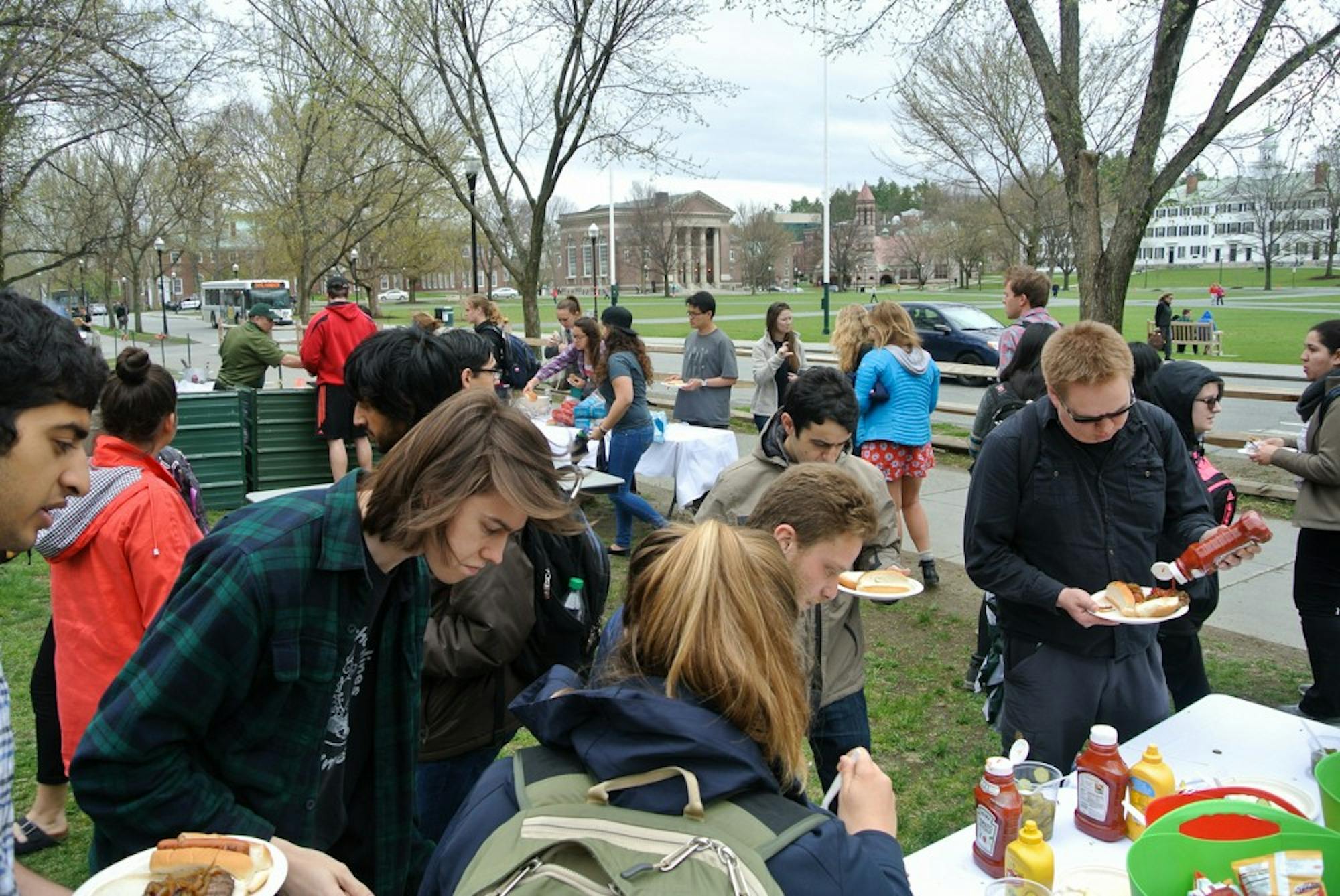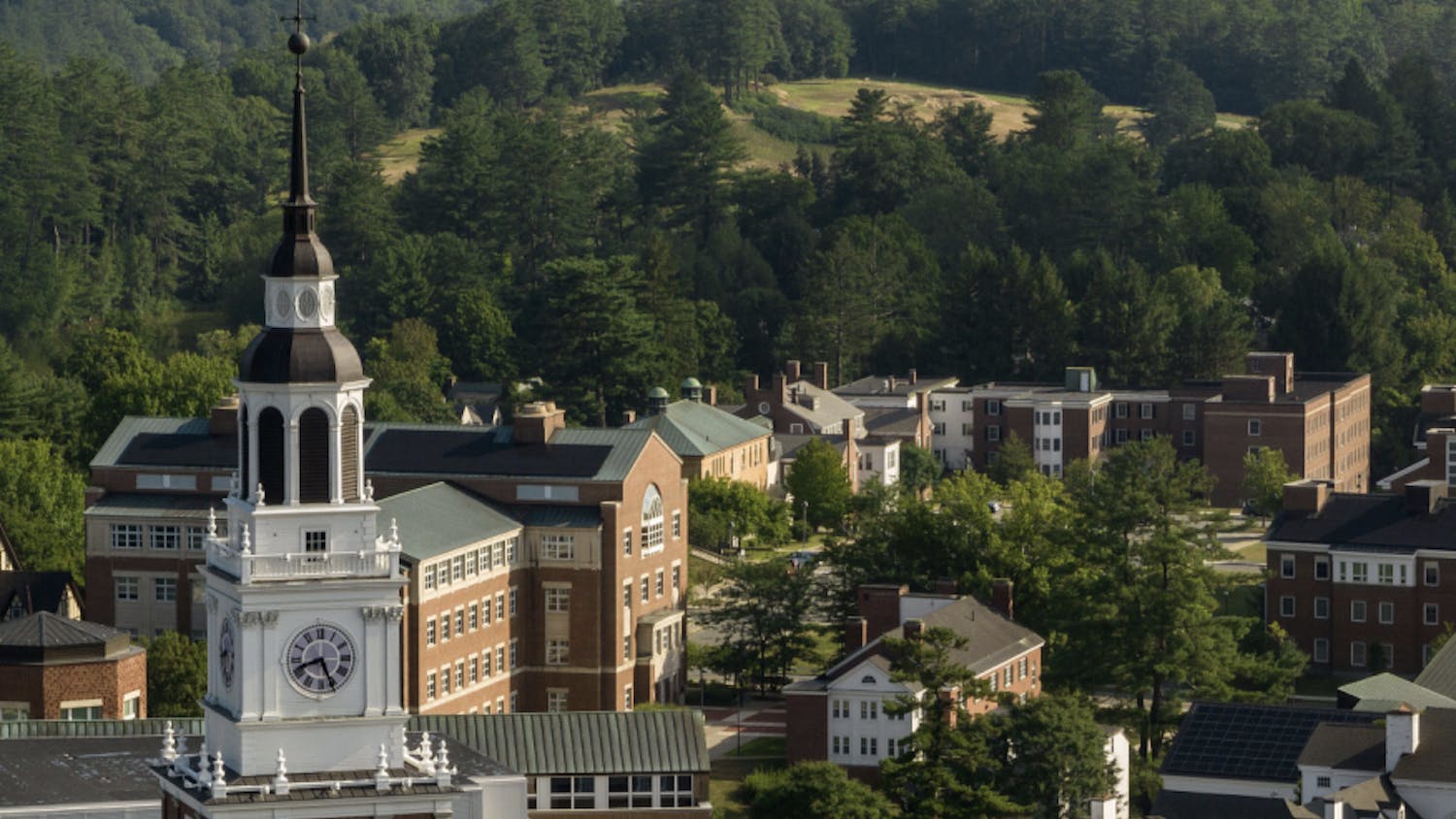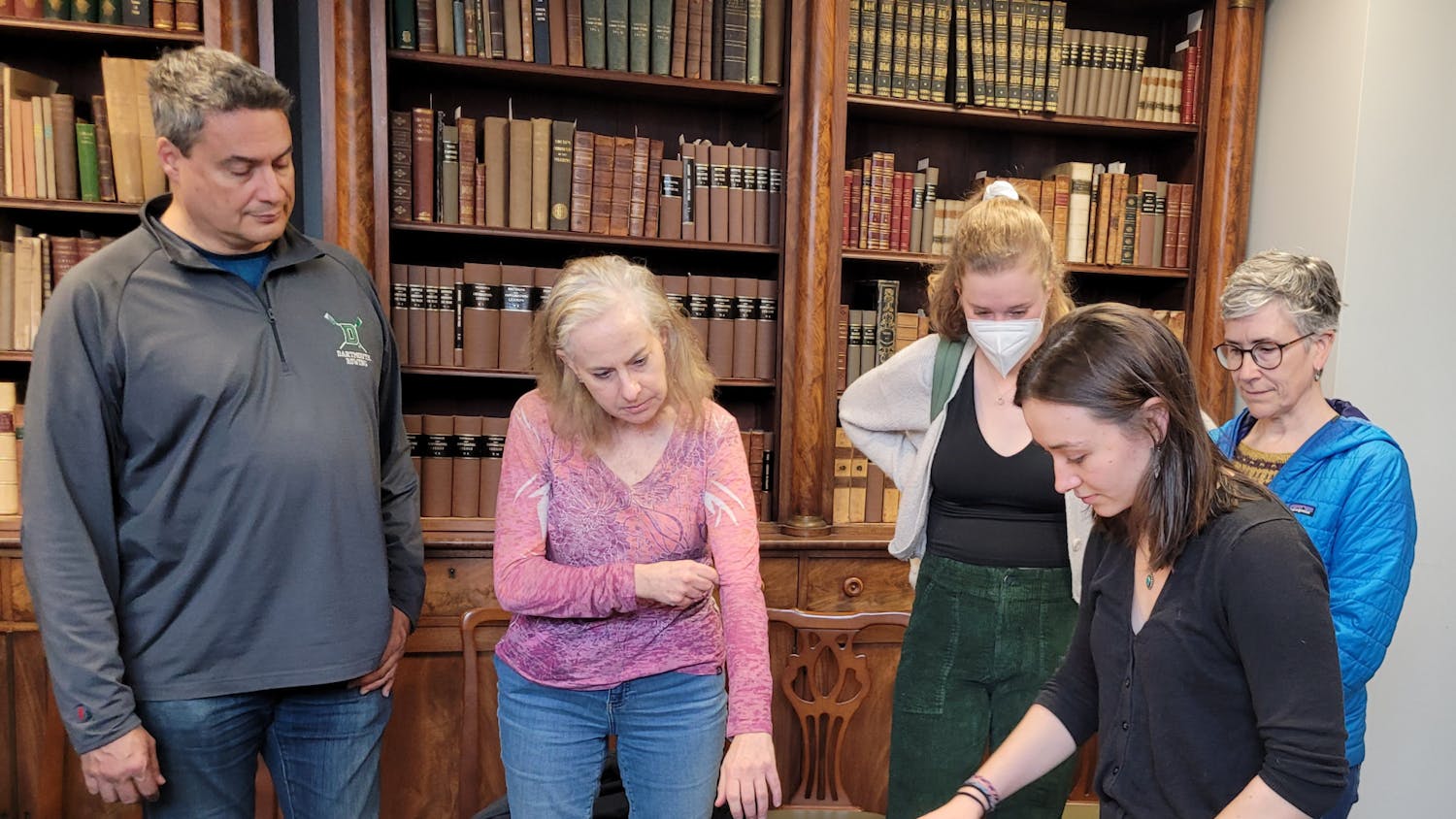Tonight, students will gather over hors d’oeuvres and an open bar at the Lavender Graduation, a ceremony which recognizes the achievements of graduating seniors who are part of the LGBTQIA community. The event, hosted at the Triangle House, will cap off a two-week long PRIDE 2016 and will include a book dedication from authors in the Dartmouth Gay, Lesbian, Bisexual and Transgender Alumni/Ae Association.
PRIDE 2016 co-chairs Shiv Sethi '17 and Alexander Johnson '18 said that PRIDE Week was a success in terms of reinforcing the LGBTQIA community on campus, strengthening allyship and also cultivating students from the Class of 2019 as future PRIDE Week organizers.
Sethi said that PRIDE Week helps bring together dispersed LGBTQIA communities on campus and that some of its programs — such as Outspoken, a story-sharing event and Transform, a fashion show mostly comprised of LGBTQIA+ students — had a great impact in uniting the community.
The stories shared by panelists in Outspoken were “awesome” and many people with whom the stories resonated stayed after to discuss their lives, he said.
TRANSFORM model and performer Carlos Tifa Jr. '19 said that the event provided the LGBTQIA community with a stage upon which they could exhibit their aesthetic.
“The theme was based on self-expression,” he said. “People portray what they identify as in their clothes, the way they walk and the way they held themselves during the performance.”
Tifa said that his performance outfit was inspired by Prince’s look, including included heels, silver belts and “dramatic” Black Swan-esque makeup.
Johnson said that there was a strong ally showing at PRIDE Week events, especially at TRANSFORM, the speech of the Baltimore Trans Alliance director Bryanna Jenkins and Outspoken.
This year was the first time that PRIDE Week programming continued over two weeks, as opposed to just one. Johnson said the extension was worth it because the opportunity to host more events created greater impact.
Despite the increase in the number of events, Johnson said that the PRIDE 2016 budget did not increase, partly due to some budgeting modifications. Instead of inviting a single keynote speaker who typically takes up a great part of the budget, this year’s PRIDE Week featured several non-keynote speakers, he said.
“Spending less money on individual events allowed us to extend roughly the same amount of money into a longer timeframe without sacrificing the quality,” Johnson said.
In reference to the PRIDE 2016 committee board, Sethi said that the Class of 2019 co-chairs all did well in their various positions as leaders. Johnson agreed, adding that the co-chairs were “really good at reaching out to people.”
PRIDE 2016 social co-chair Armando Ortiz '19 said that he personally improved his organizational skills, and that he received useful tips from advisors and people who previously worked on PRIDE boards.
A Class of 2019 co-chair, who requested anonymity because she does not want her sexual orientation to be public knowledge, said that planning PRIDE Week required her to create and maintain many interpersonal relationships. In addition, she managed details related to contacting the music industry,
She also said that future PRIDE weeks could improve on certain aspects, such as the budget, which she said was less than the amount the team really wanted.
Because of the budget constraints, she said that she had to eliminate some performers from the list, including actress and musician Julia Weldon who would have spoken about being queer in the entertainment industry and would have added more of an educational component to PRIDE Week.
“Her appearance could have exposed students to someone gender-queer in the music industry, or generally any industry, and tell them about ‘What is it like to navigate as a gender queer person in a certain industry?’” she said.
Weldon’s music, she added, often portrays people in the LGBTQIA community as living people with emotions as opposed to walking political statements.
The Class of 2019 co-chair also said that while many allies do exist, the amount of participation from people who are not LGBTQIA affiliated was still lower than expected. One of the ultimate goals of PRIDE, she said, is to increase the level of connection between people within and outside of the LGBTQIA community.
Some PRIDE Week events such as Outspoken, however, were specifically targeted at students who identified as LGBTQIA.
“We do want to create safe spaces for queer people, which is why the speakers in Outspoken are anonymous,” the co-chair said. “However, the fact that we need ‘safe space’ is horrible. Everywhere is a ‘safe space’ for straight people, but queers, even in a panel like Outspoken, still have to remain anonymous.”
This year’s PRIDE Week marks the 10th annual celebration since Dartmouth held its first PRIDE Week in 2007. In addition to PRIDE, the Office of Pluralism and Leadership is planning on hosting an LGBTQIA History Month in October.
PRIDE 2017 will take place at roughly the same time next spring term, Sethi said.




